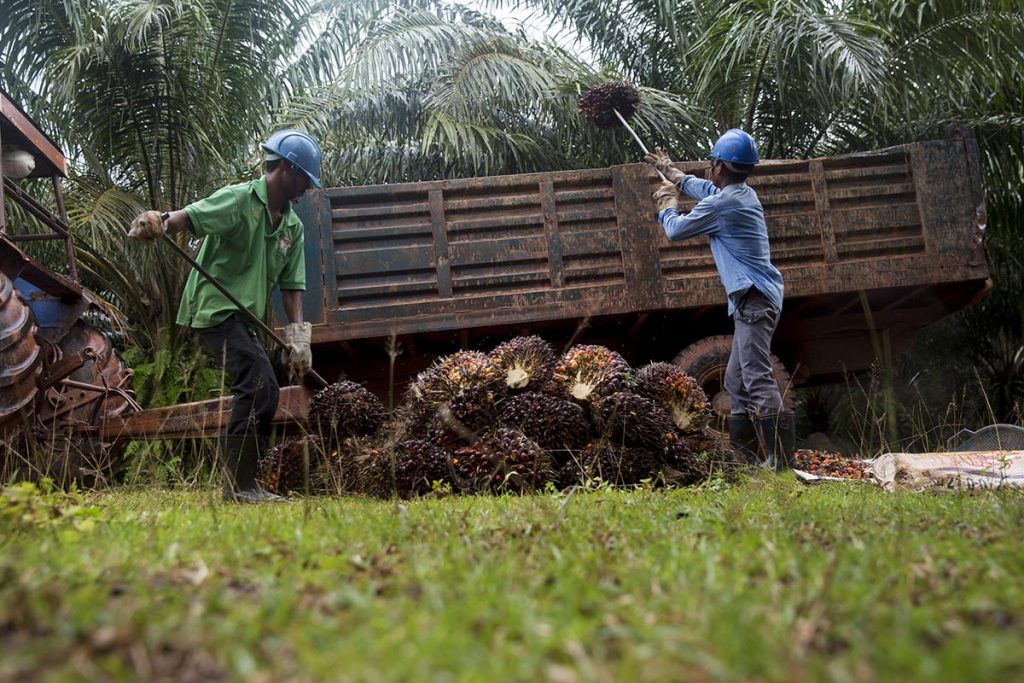November 27, 2025 | 22:05 GMT +7
November 27, 2025 | 22:05 GMT +7
Hotline: 0913.378.918
November 27, 2025 | 22:05 GMT +7
Hotline: 0913.378.918

Prof Dr Datin Paduka Fatimah Mohamed Arshad: Reduction of palm oil output of up to 80% will lead to a collapse in the supply chain.
KRI had conducted a study titled “Implications of the Dominant Shift to Industrial Crops in Malaysia: System Dynamic Model of Industrial Crops”, which found a labour reduction of 30% from the current level will see the vegetable oil’s production reduced by half.
KRI visiting senior fellow Prof Dr Datin Paduka Fatimah Mohamed Arshad, who is also the lead author of the study, said further reduction of palm oil output of up to 80% will lead to a collapse in the supply chain.
“Based on simulations done, the labour shortage is more detrimental than a global price drop to both estates and smallholders.
“The effect of the price downturn is less damaging than the labour shortage. Therefore, a Covid-19 outbreak among the migrant workers in the oil palm estates could prove detrimental,” she said.
KRI’s study also revealed that Malaysia is nearing its ceiling limit for plantation cultivation at 6.5 million ha as, in 2019, a total of 5.9 million ha of oil palm land belonged to large estates, while 986,000ha or 17% to smallholders.
“The study showed that development support for our smallholders yields higher impact to the smallholders, particularly on their return per ha compared to the estates.
“Fast forward, if these trends continue, the sustainability of the industry will be weakened given the area ceiling limit, economic and ecological risks.
“The case of ‘overshoot and collapse’ of the Brazilian and Malaysian cocoa has proved this point,” the report read.
It added that the industry is in a dire need to reduce the dependency on the land area, at the same time, maintaining the yield volume, expediting replanting and reducing non-labour input cost to increase production and revenue.
“The replanting rate normally practised by the oil palm sector is at 12%, or about 12 new trees are typically planted each year for every 100 overmatured trees.
“However, our simulations showed that the optimal replanting fraction to get the best yield per ha for an estate is 15%, and a smallholder at 17% instead of the usual 12%.
“Investments on the smallholders will create inclusive growth, equitable distribution and hence sustainability of the oil palm sector,” it said.
Due to the limitation in the plantation area, the research house has proposed several recommendations including mixed-crop cultivation and measures to minimise risks for planters.
“Given the land limit, it is imperative that efforts have to be stepped up to further increase yield through research and development, expedite replanting and develop local non-labour input development to reduce the cost of production and dependence on land expansion.
“Intensify multi-cropping and mixed enterprises to minimise risk and optimise revenue, both for smallholders and estates, which include crop and livestock integration for ecological and economic benefits to maximise land values and sustainability,” it added.
(Malaysian Reserve)

(VAN) A new study reveals how the simultaneous effects of ocean acidification, salinity and loss of oxygen are making the world more fragile.

(VAN) Hopes are growing that the creation of the first 3D turkey gut model could be a turning point in the battle against the virulent blackhead disease.

(VAN) Tyson, America’s biggest meat supplier, plans to shutter one of its largest beef processing plants as the industry continues to struggle with low cattle supplies and political pressure from Washington.

(VAN) New FAO study shows how digital solutions are empowering farmers and fishers to prevent losses and build resilient agrifood systems.

(VAN) Brazil's COP30 presidency pushed through a compromise climate deal on Saturday that would boost finance for poor nations coping with global warming but that omitted any mention of the fossil fuels driving it.

(VAN) Poultry farmers in the UK have been warned that they could face one of the worst winters yet for bird flu.

(VAN) Prices of main-crop paddy have risen sharply, with jasmine rice hitting 16,100 baht per tonne — the highest level in years.